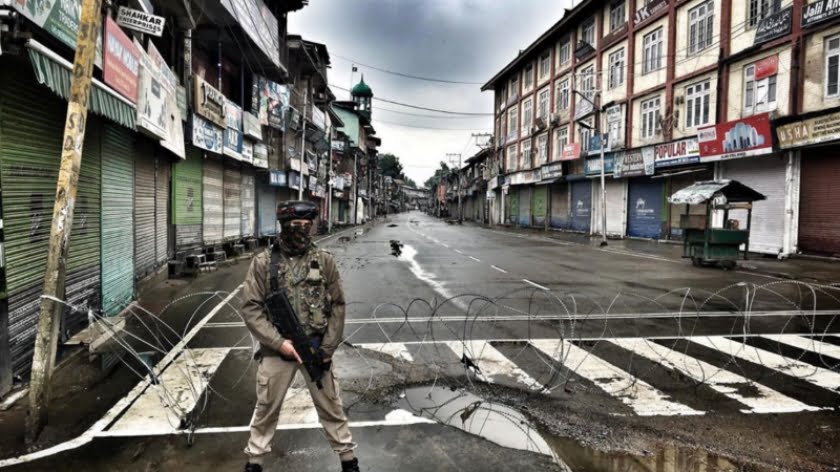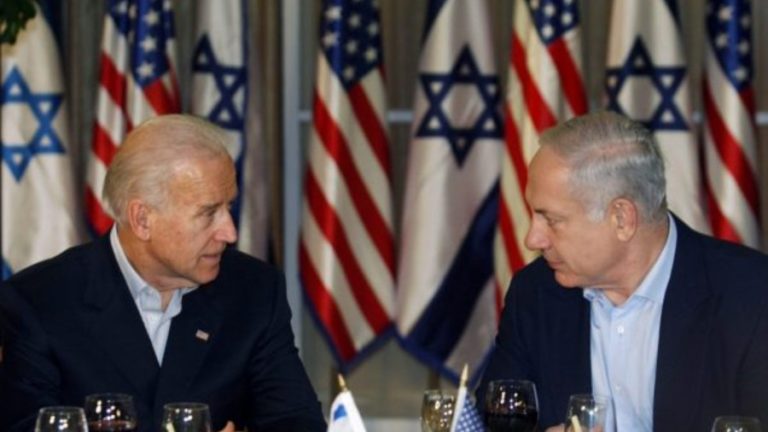5 in a Row…
Who is to blame for the current state of chaos in Iraq? An oversimplified and misguided, if not dishonest course of action would be to blame Iraqis for being the radical, death-cult worshipping fanatics they are and ignore America’s foreign policy decision-making, which led to the current situation. In turn, one could place Iraq on a travel ban list of nations that doesn’t include any of the countries that created and support al-Qaeda (and then nonsensically remove them from your revised list some weeks later).
Of course, a more honest and fruitful venture would be to examine the events that led to the current situation engulfing Iraq. As American airstrikes continue to massacre the Iraqi civilian population by the hundreds, we owe it to the Iraqi people to get to the bottom of this story. From there, we could ostensibly create a future path that might bring peace to the war-torn nation as opposed to blindly continuing the same policies Iraq has been victim to for decades.
In the early 1900s, the British drew up artificial boundaries for Iraq and forced diverse groups in a sectarian society to identify themselves under one nation. The tactic was part of a wider divide and conquer strategy the British employed throughout the region. According to the New York Times, the CIA actively supported Saddam Hussein’s initial rise to power in the 1960s by staging a coup in a bid to undermine the “threat” of Abdel Karim Kassem, who had grown too assertive for Washington’s liking.
U.S support for Hussein continued for decades as the U.S. heavily backed Iraq’s war of aggression against neighboring Iran, even though the U.S. knew he was using chemical weapons. The U.S. also secretly armed the Iranians at the same time to maximize the death toll (the war cost well over one million Iraqi and Iranian lives). The U.S. was even trying to convince Hussein to attack the Assad regime in Syria even though they knew Hussein was, at the time, “fighting for his life” in the Iran-Iraq war.
Following this brutal war, the U.S. duped Hussein into thinking they had given him the green light to invade Kuwait. As soon as Hussein invaded Kuwait, the U.S. almost immediately turned its back on him and began a P.R. campaign that would eventually lead to an invasion on Iraqi soil. In 1994, when Dick Cheney was asked if U.S. forces should have gone all the way to Baghdad. He responded with a resolute “no,” before adding further:
“… if we’d gone to Baghdad, we would have been all alone. There wouldn’t have been anybody else with us. There would have been a US occupation of Iraq. None of the Arab forces that were willing to fight with us in Kuwait were willing to invade Iraq. Once you got to Iraq and took it over, took down Saddam Hussein’s government, then what are you going to put in its place? That’s a very volatile part of the world, and if you take down the central government of Iraq, you could very easily end up seeing pieces of Iraq fly off. Part of it the Syrians would like to have, the west. Part of eastern Iraq the Iranians would like to claim. Fought over for eight years. In the north, you’ve got the Kurds. And if the Kurds spin loose and join with Kurds in Turkey, then you threaten the territorial integrity of Turkey. It’s a quagmire if you go that far and try to take over Iraq.”
Let that sink in for a moment: The man who unleashed chaos in Iraq in 2003 knew exactly why it would be dangerous to do so a decade prior. Following the first U.S. invasion of Iraq, the U.S. slapped economic sanctions on Iraq that reportedly killed over 500,000 Iraqi children. The U.N. humanitarian coordinator in Iraq, Denis Halliday, resigned in protest, stating:
“Four thousand to five thousand children are dying unnecessarily every month due to the impact of sanctions because of the breakdown of water and sanitation, inadequate diet and the bad internal health situation.”
As if Iraq hadn’t suffered enough, the U.S. decided to invade again in 2003, only this time, they ousted Saddam Hussein and his entire government, capitalizing on American fears after 9/11 to attack a country that had nothing to do with the terror attacks.
It is worth noting that the Project for the New American Century, an organization of which Cheney was also a member, released a document in 2001 entitled “Rebuilding America’s Defenses Strategy, Forces and Resources For a New Century.” This document called for massive increases in U.S. military spending and a much more aggressive foreign policy agenda in order to expand America’s dominance worldwide. Unsurprisingly, Iraq is featured heavily in this document.
In March 2003, the U.S. began its “Shock and Awe” bombing campaign “on a scale that indicate[d] to Iraqis” that Saddam and his leadership were finished, according to then-Defense Secretary Donald Rumsfeld, as reported by CNN.
Shortly after, Paul Bremer, leader of the Coalition Provisional Authority and U.S. Presidential Envoy and Administrator in Iraq, fired close to 400,000 servicemen simply because they were part of Saddam Hussein’s Baathist party. This was perhaps the single largest blunder of the 2003 invasion (if it is possible to pinpoint one in particular) because this directly led to the rise of ISIS. In May 2015, Time Magazine ran an article entitled “How Disbanding the Iraqi Army Fueled ISIS.” This is hardly a conspiracy theory.
As is quite clear, ISIS and the various other terrorist groups that were able to establish a foothold in Iraq following the U.S. invasion have been wreaking havoc and mayhem across the country. As Ben Swann, an investigative journalist and outspoken critic of U.S. foreign policy, stated quite astutely:
“Before the 2003 U.S. invasion, do you know how many suicide attacks there were in Iraq? None. In the country’s history there had never been one. But since the 2003 invasion, there have been 1,892.
Donald J. Trump is the fifth straight president in succession to bomb Iraq. Ask yourself: as an American, or any other Westerner for that matter, what has Iraq as a nation, or any Iraqi ever, done to you? What has Iraq done to the world to deserve this treatment? And what is the connection between relentlessly bombing a country for decades, and crippling its economy – and its liberation? Can anyone explain at what stage, since the early 1900s, Iraq has been liberated by anyone?
Trump supporters and his media mouthpieces can spout anti-Islamic rhetoric as much as they like, but it is a truly intellectually dishonest position to focus solely on the region’s religion and not on the actual events that led to the chaos we are seeing unfolding right now. There are many majority-Muslim countries that are actually tourism hotspots, so surely there is something in particular about Iraq’s situation that makes it such a hotbed of violence and terrorism.
And it is as important now as ever to examine these underlying events and causes considering the U.S. air campaign in Iraq is radically intensifying.
By Darius Shahtahmasebi
Source: AntiMedia







